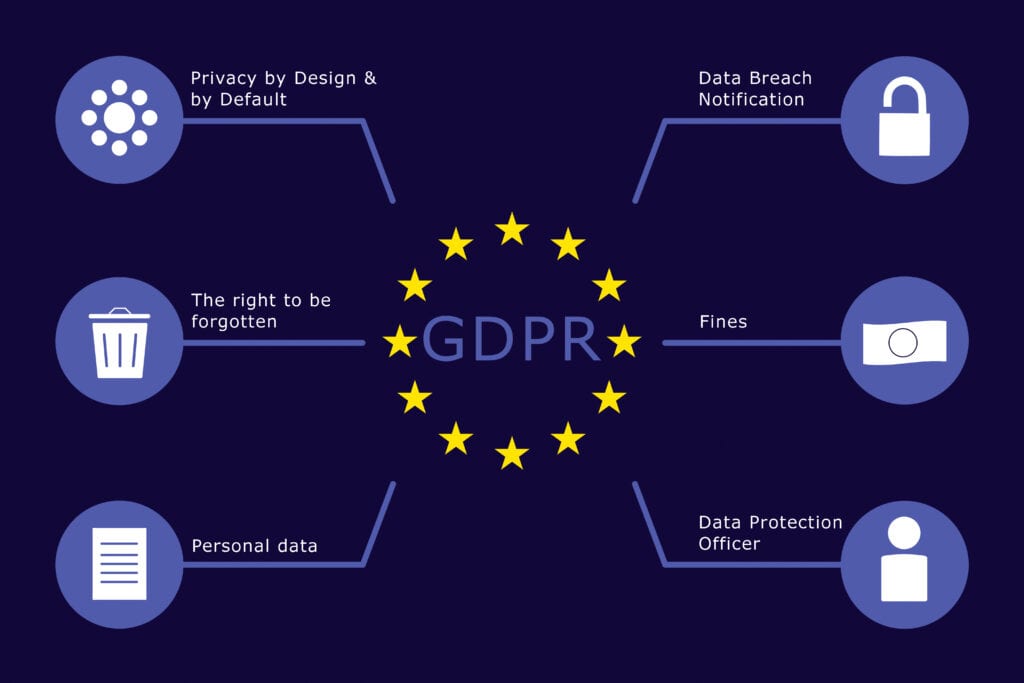How To Optimize Facebook Pixel While Complying With GDPR
This article will provide Digital Marketers and Businesses with an in-depth overview of how to optimize the Facebook Pixel for cost-effective advertising while providing essential tips on GDPR compliance when using the tool.
What Is The Facebook Pixel?

The Facebook pixel is a powerful tool that businesses can harness to collect valuable data about consumer actions that have taken place on a particular website where the pixel is installed. Businesses can select the actions that they want to track, which corresponds with their business goals and campaign objectives. The pixel is essentially a small piece of code, that records and analyses information about the actions consumers take on the site, such as time on-page, scroll-depth, purchases or adding an item to a cart. It can be installed manually, through a businesses website developer, or a third party-partner. The data collected helps businesses to track conversions from Facebook campaigns, optimize ads by showing relevant ads to the correct audience, build targeted audiences for future campaigns, and retarget customers who have previously taken some kind of action on the site.
“It works by placing and triggering cookies to track users as they interact with your website and your Facebook ads”
(The Facebook Pixel: What It Is and How to Use It, 2019).
How Does One Use The Facebook Pixel?

Data generated from the pixel can be used by the business to analyze the results of their ad campaigns and pinpoint specific metrics that may need to be improved on, such as tweaking ad placements or continuing a certain campaign if results prove satisfactory. For example, retargeting consumers who previously added an item to a cart but abandoned it, but returned to the website after they were retargeted with a discount code. These types of consumers are known as custom audiences, who initiated some type of action on the company’s website. Consumer actions can provide businesses with a deeper understanding of the consumer purchasing journey, e.g., which pages consumers view on the site.
Alternatively, the pixel can be used to create look-alike audiences that target new potential customers, who possess the same characteristics and demographics as the custom audience. There are three different ways to record customer actions on a website with the pixel: standard events, custom events, and custom conversions, which we will discuss in more detail later. The more website conversions the pixel records, the greater the deliverance of Facebook ads in a business’s audience who are likely to carry out desired actions.
“This allows you to improve your Facebook ad conversion rate and get better ROI”
(The Facebook Pixel: What It Is and How to Use It, 2019).
Standard Events
Facebook provides 17 different standard events, each containing a unique website code that businesses can choose to track, resulting in valuable data obtained from conversions, thereby allowing businesses to optimize for conversions and build audiences.

These standard events include:
- Add payment info
- Add to cart
- Add to Wishlist
- Complete registration
- Contact
- Customise product
- Donate
- Find location
- Initiate checkout
- Lead
- Purchase
- Schedule
- Search
- Start trial
- Submit application
- Subscribe
- View content
(Set Up and Use the Facebook Pixel for Ad Campaigns, 2021)
Custom Events
Custom events enable businesses to track any website page that falls outside those supported by Facebook’s standard events as a conversion, such as time spent on a page. These custom events can then be used to build custom audiences.
Custom Conversions
Custom conversions allow businesses to measure even more customer actions without setting any code to a website by setting rules for existing standard events or specific URLs.
What Data Does The Facebook Pixel Collect?

The data collected by The Facebook Pixel is aggregated to improve business ads and furthermore, business goals and campaign objectives. The information is protected from competitors and third parties. There are 5 types of data collected:
- HTTP Headers – Includes IP addresses, information about web browsers used, page location, document, referrer, and the customer using the website.
- Pixel-Specific Data – Includes pixel ID and cookies.
- Button Click Data – Includes any buttons clicked by site visitors which led to page visits.
- Optional Values – Includes information sent by a business from the use of custom events, e.g., scroll depth.
- Form Field Names – Includes website field names when a customer purchases a product/service, e.g., email, address, quantity.
(General Data Protection Regulation – Facebook Pixel – Documentation – Facebook for Developers, 2021)
What Is GDPR?
GDPR (General Data Protection Regulation) is a European law that requires businesses to protect the personal data and privacy of audiences within the EU member states. GDPR provides individuals with rights over how their data is used. These rights include:
- The right to consent
- The right to access your data
- The right to edit any incorrect information
- The right to delete your data
- The right to a copy of your data
- The right to be informed on how your data is used
- The right to automated decision making and profiling
- The right to have your data updated regularly and stored securely

Does Facebook Pixel Comply With GDPR?
Businesses using Facebook pixel are liable to comply with GDPR. Any customer actions recorded by the pixel from standard events, require consent from the users. Businesses can obtain consent by displaying a message (cookie banner) when the page loads for the first time. Additionally, you must obtain consent from custom audiences, e.g., before uploading email addresses or contact information into a Facebook custom audience, as this activity transforms a business into a data controller. Any private data in the possession of a business without having obtained user consent or those who have opted-out of your list must be deleted immediately. Read more on big data for marketers.
“GDPR stipulates that as a data controller, you must ensure that your subscribers give their consent before you can market to them”
(Is Facebook GDPR compliant? 2019)
What Are The Risks Of Non-Compliance With GDPR?
It is vital for businesses to comply with GDPR when using Facebook Pixel. Non-compliance will result in heavy fines and possible legality issues. Furthermore, individuals have the right to compensation if a business has infringed on their GDPR rights.
“Companies that violate GDPR may be fined up to €20 million, or up to 4% of the annual worldwide turnover of the preceding financial year, whichever is greater”
(GDPR and Facebook: all you need to know, 2021).
Bottom Line
In this blog, we discussed what the Facebook Pixel is, how to use it to better target your ads and how to ensure GDPR compliance when employing the tool. It allows for the effective integration of digital marketing optimization, which without the use of such tools, will result in advertisers facing difficulties in keeping up with competitors. The Facebook Pixel has been created for ultimate time-saving in the extraction and analysis of consumer data while providing metrics on the online presence of a business. Furthermore, the pixel allows one to monitor the success of Facebook campaigns while providing accurate conversion statistics and site traffic performance. Read more on how to run a successful Facebook campaign. I highly recommend Facebook pixel optimization for marketers who advertise using Facebook ads. This powerful tool can help you get the most out of your Facebook ad budget while saving you both time and money, which in the end is every digital marketer’s dream!
Learn here how to install the Facebook pixel

References
- Developers.facebook.com. 2021. General Data Protection Regulation – Facebook Pixel – Documentation – Facebook for Developers. [online] Available at: <https://developers.facebook.com/docs/facebook-pixel/implementation/gdpr/> [Accessed 17 February 2021].
- Facebook Blueprint. 2021. Set Up and Use the Facebook Pixel for Ad Campaigns. [online] Available at: <https://www.facebookblueprint.com/student/collection/238354/path/206358> [Accessed 17 February 2021].
- iCaaS. 2019. Is Facebook GDPR compliant?. [online] Available at: <https://myicaas.com/business/is-facebook-gdpr-compliant/> [Accessed 17 February 2021].
- LeadsBridge. 2021. GDPR and Facebook: all you need to know. [online] Available at: <https://leadsbridge.com/blog/guides/gdpr-and-facebook-all-you-need-to-know-to-keep-advertising-safely/> [Accessed 17 February 2021].
- Social Media Marketing & Management Dashboard. 2019. The Facebook Pixel: What It Is and How to Use It. [online] Available at: <https://blog.hootsuite.com/facebook-pixel/> [Accessed 17 February 2021].





Recent Comments